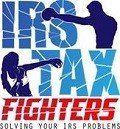Other types of levies
Private creditors may issue a levy against your bank account with a court order. Court orders are not required for levies by government agencies. The creditor must notify you of the upcoming levy at least 21 days before removing any funds from your account. You may not withdraw money or close the account during this waiting period.
Funds earned from child support, social security, unemployment, workers' compensation settlements and certain other types of government agency payments may be exempt from private creditor levies. The rules in each state differ, but most states exempt these types of income from private creditors. You must request the exemption and offer proof of the source of the funds. These types of income sources, however, are generally not exempt from federal and state back tax levies.
Wage Garnishments
Government agencies may also garnish an employee's wages for back taxes, child support and other delinquent payments required by law.
The IRS has the authority to levy up to 85 percent of the employee's paycheck. The levy notice will be sent to your company's payroll or human resources department. The employer must then withhold the appropriate amount of money from the employee's paycheck and send it to the IRS or state tax board. The employee must provide a wage garnishment release to release the levy.
If you are behind on your taxes, the IRS may levy most payments from federal agencies. This includes railroad retirement benefits, Medicare supplier and provider payments, payments on contracts between your company and a government agency, federal retirement annuities and travel reimbursements.
You may apply for a hardship exemption if the levy will cause your company undue financial distress. Companies going through bankruptcy proceedings are automatically exempt from IRS levies.
Seizing Your Assets
The IRS may also seize your real estate and personal property such as a car or boat. You will receive a 30-day notice indicating that seizures will follow if you do not pay your outstanding taxes or contact the IRS to make payment arrangements. This authority also extends to property and money you own that are being held by another party, such as life insurance cash value. The government sells its seized property at auction to recover some of the funds owed by delinquent taxpayers.
What To Do If You Have An IRS Levy
Back taxes don’t just disappear if you ignore them long enough. Putting your head in the sand will cause the problem to get worse.
If you have back tax debt, we highly recommend you reach out to our firm first. Our clients never have to talk to the IRS, and tax resolution through our firm can save you money and time in the long run. You might also be eligible for other IRS relief programs or get your penalties reduced or removed.
Reach out to our firm today
for a free consultation.


